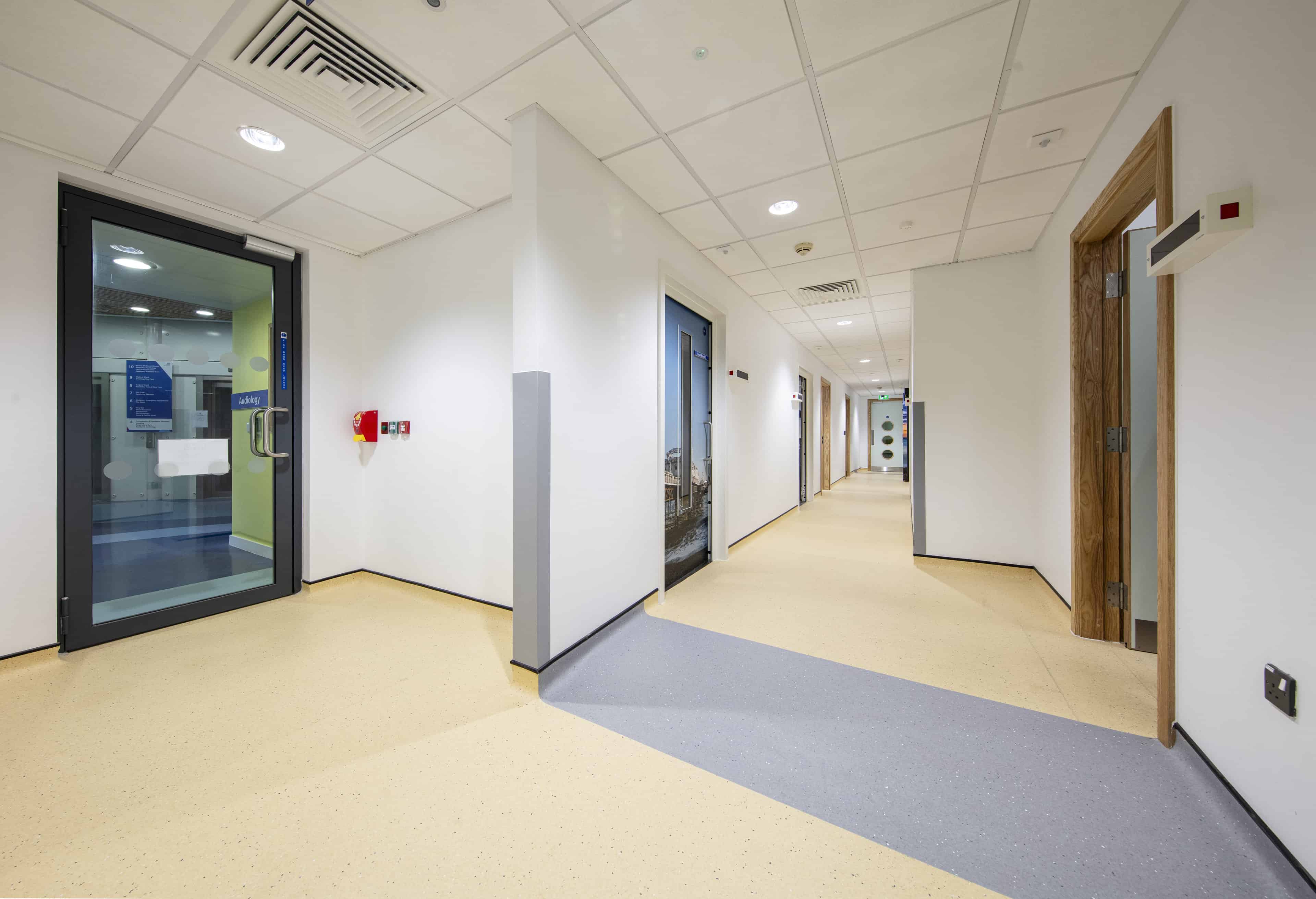Climate change represents one of the greatest health challenges of our time. As the UK’s largest employer and a major contributor to national emissions, the NHS has both the opportunity and responsibility to lead the way in sustainability. In fact, the NHS in England has committed to becoming the world’s first net-zero carbon national health service, embedding this ambition into law through the Health and Care Act 2022.
Two core targets underpin this commitment:
- Reaching net zero by 2040 for the emissions the NHS directly controls.
- Reaching net zero by 2045 for emissions it influences, through its suppliers and wider partners.
With the NHS responsible for around 4% of the UK’s total carbon footprint, success here will make a significant difference to the nation’s wider decarbonisation journey.
Challenges for NHS Estates
NHS estates include hospitals, GP surgeries, health centres, and specialist facilities, representing around 10% of all UK public sector buildings.
NHS estates are energy-intensive, running 24 hours a day, seven days a week, and many facilities rely on ageing infrastructure that was not designed with sustainability in mind. As a result, they often rely on outdated heating systems, poor insulation, and inefficient energy use. With little opportunity for downtime, refurbishments and upgrades must be carefully planned to avoid disruption to patient care.
Despite these hurdles, the NHS has a clear path forward. With strategic investment, innovative approaches and collaboration across the supply chain, it’s estates can become a cornerstone of the NHS’s journey to net zero.
Strategies to Achieve NHS Net-Zero
To meet the ambitious net-zero targets by 2040 for direct emissions and 2045 for indirect emissions, the NHS must transform the way it consumes and manages energy. Several key strategies are already leading the way:
Switching to Renewable Energy
Transitioning to 100% renewable electricity is a significant step in cutting the carbon footprint of NHS facilities. This approach not only reduces emissions but can also deliver substantial cost savings over time.
Improving Energy Efficiency
Upgrades such as LED lighting, better insulation, and smarter building management systems can dramatically reduce energy use. Energy efficiency programmes that train staff to monitor and improve performance are also critical in driving lasting change.
Decarbonising Heat
Moving away from gas-powered boilers towards technologies like heat pumps, biofuels, and locally-generated solar energy is one of the biggest challenges. Innovative solutions such as power purchase agreements (PPAs) offer cost-effective ways to expand renewable capacity.
Designing and Building Net-Zero Facilities
New hospitals, health centres, and GP surgeries are being designed with sustainability at their core. From optimised building orientation to advanced materials and renewable systems, these facilities are setting a benchmark for the future of healthcare construction.
Engaging Suppliers and Partners
Through the NHS Net Zero Supplier Roadmap, procurement processes now prioritise carbon reduction and social value. Suppliers are required to publish carbon reduction plans, ensuring sustainability is embedded across the entire supply chain.
Embedding Social Value
Decarbonisation goes hand in hand with creating social value. Initiatives that support staff wellbeing, promote diversity, and reduce inequality not only meet NHS procurement requirements but also strengthen community impact alongside environmental benefits.
Did You Know? Our Decarbonise Today service draws on our deep expertise in the decarbonisation of buildings, enabling us to assess current progress, identify funding opportunities, and deliver clear, actionable plans that help our customers meet their net zero ambitions.
Funding Opportunities for NHS Decarbonisation
One of the greatest barriers to delivering large-scale decarbonisation projects across the NHS is funding. Budget pressures and competing operational priorities are making it difficult to allocate resources towards sustainability upgrades. However, a range of government-backed and sector-specific funding opportunities is available to support the transition.
Public Sector Decarbonisation Scheme (PSDS)
The Public Sector Decarbonisation Scheme, managed by Salix Finance, provides grants to public bodies, including NHS Trusts, to fund heat decarbonisation and energy efficiency projects. Previous funding rounds have supported boiler replacements, LED lighting upgrades, and the installation of renewable technologies across healthcare sites.
Great British Energy Solar Panel and Battery Storage Grants
In March 2025, Great British Energy announced a £100 million funding initiative to support NHS Trusts in installing solar panels and battery storage systems. This funding aims to reduce energy bills and enhance energy resilience across NHS sites.
How Willmott Dixon Interiors is Supporting NHS Net Zero
Willmott Dixon Interiors is committed to helping the NHS achieve its net zero ambitions through sustainable healthcare facility and hospital fit-out solutions. Our expertise in delivering low-carbon upgrades within live healthcare environments ensures that vital facilities remain fully operational while we enhance their efficiency, resilience, and sustainability.
As part of this commitment, we run a series of Continuing Professional Development (CPD) sessions designed specifically for NHS decision-makers and consultants. These sessions provide a unique opportunity to:
- Gain insights from our experience in sustainable refurbishment across the NHS estate.
- Explore practical approaches to delivering low-carbon solutions in complex, operational healthcare settings.
- Start conversations early, so we can support your Trust in planning and implementing an effective path to net zero.
Watch our most recent session from June 2025 here: “Delivering a Net Zero NHS – Practical Steps to Decarbonisation”.
Our next online CPD session will take place on Tuesday, 30th September, at 10:00 am. You can find full details and register for the event here: “Delivering Low-Carbon Upgrades in Live NHS Environments”.
